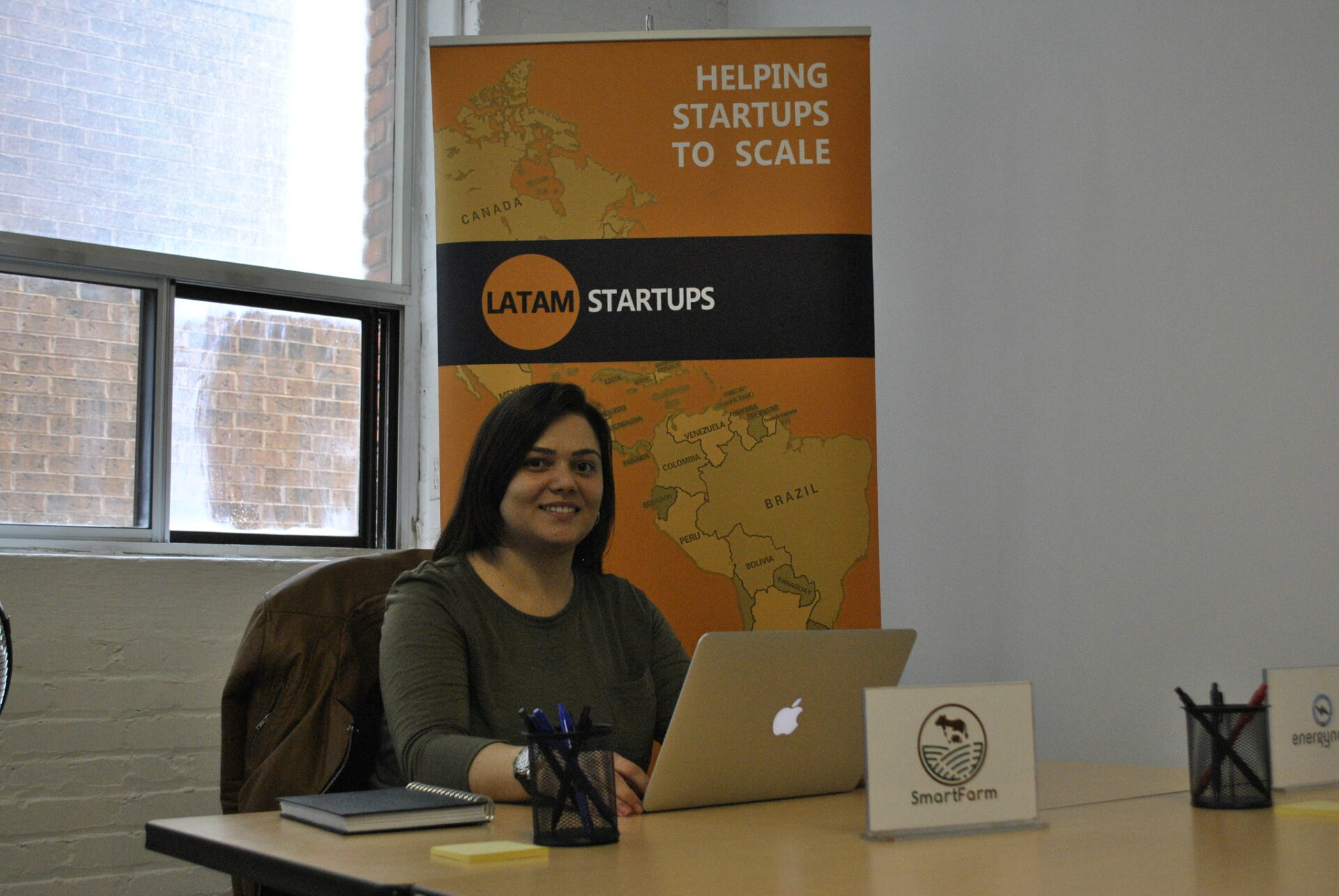For SmartFarm, a Toronto-based branch of Brazilian startup Agromarra, the future of agriculture lies in data analysis, AI and QR code tagging. But in order to shift this traditional industry into the next generation, the startup must first focus on growing its global presence.
Written by Andrew Seale, Startup Here Toronto
There’s no question Brazil and Canada share an affinity for agriculture, both count the sector as a key economic driver and both have begun to look into the future of farming through research and development.
So when Toronto’s LatAm Startups accelerator offered Brazil-based agricultural tech startup Agromarra a spot in its first four-month cohort, Rebeca Souza was quick to take a post as CEO launching the company’s Canadian branch under the SmartFarm name.
It was a great opportunity, says Souza. “Not just for the resources, there’s an educational system in entrepreneurship in Canada that Brazil is (still) a little behind.”
The move has allowed SmartFarm – which develops QR code tagging for animals, enabling farmers and auctions to use their mobile app to understand each animal’s health, history and genealogy – to feed off Toronto’s pool of tech talent.
Since joining LatAm at the end of 2016, SmartFarm has bolstered its technological approach, working with emerging technologies like artificial intelligence and analytics to fuel the farms of the future through more efficient management.
Souza, who’d studied in Toronto for a year in 2015, admits that in the beginning, navigating the market was a challenging process.
“You have to learn how to do things the Canadian way and learn how things work here with customers and investors,” she says. But through LatAm, SmartFarm was able to clinch a spot at HELIX, Seneca College’s incubator and accelerator. “They are awesome,” says Souza of the support team at HELIX. “(There’s) mentoring resources that they make available, it makes my life a lot easier.”
She points out that SmartFarm was still pre-revenue when HELIX brought them in. But Chris Dudley, director of HELIX said it was an easy call, the company fit smoothly within the incubator and accelerator’s community values and their approach to helping build global companies.
“Business is not just around the corner or down the street or just in your city, it’s worldwide. if you go halfway around the world you will find customers or investors or partners or suppliers and we want to make sure HELIXers have exposure to the international marketplace,” says Dudley.
Which was one of the appeals for SmartFarm. While they’re exploring the nuances of Canada’s ag-tech scene, Souza plans to use Toronto as a launch pad to reach further international agricultural markets like India and China, places that already have strong economic ties to Canada.
“There’s a boom in agricultural technology… applying technology (to farms that) people never thought about,” says Souza. And SmartFarm is hoping to sit at the forefront, developing intuitive solutions like voice-controlled mobile apps, and AI-led analytics. She also admits there’s a certain openness to female entrepreneurs in the agricultural sphere in Canada, a difference from Brazil where the industry often feels traditional.
“There are many challenges in Latin America… but it’s changing,” she says. “I want to become an entrepreneur for fellow women entrepreneurs back home, (to) show how it should be done – being in Canada opened my mind to what was possible.”


